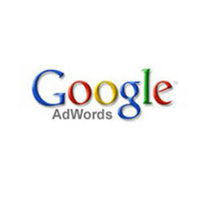
Whenever you do a Google search, you will notice the top and bottom entries are ads. Google Adwords, an advertising tool created by Google, allows anybody to post an ad – for a price. The price is determined by how much you are willing to pay for someone to click on your ad. This is known as pay-per-click advertising, and is Google's main source of revenue.
It's ingenious, really, when you think about it. Advertisers are willing to take a gamble that people who click on their ad are interested enough to purchase a product. And, even if they don't click, thousands of people have at least seen the ad. All the better if it includes an eye-catching picture.
When Hostmonster offered me a free $100 of Adwords for my new website (which was doubled by joining Linkedin), I jumped at the chance. I called Google Adwords, and an obliging representative posted several attractive ads for my book. A few days later, another helpful representative called and, for an hour and a half, tutored me in all the details of how to track my campaign – daily budget, click-through rate (CTR, the percentage of people clicking after viewing your ad), the success of differently phrased ads, keywords, and many more sources of statistics.
It was complicated. It was taxing. And it was a completely inefficient way to market a book.
Time for some stats. My CTR (click-through rate) was .02%, which means that of the 200,000 times my ad appeared on Google, only twenty people clicked on it. Even Google admitted that this was an abysmal CTR. Nonetheless, I persisted. Twenty people was still twenty people after all. However, when I looked at my Google Analytics stats, I found a 50% bounce rate. That meant that of the twenty people actually visiting the site, half of them left immediately. Only ten people stayed long enough to read anything. Of those ten, one bought the book.
I was delighted that one person had bought my book. But, if I had paid for those ads, it would have cost me $200 to sell a book worth $2.99 (of which I made $2.10). By anybody's reckoning that's a waste of money. In fact, unless you sell a product that costs over $200, it would be a waste of money for anyone to use Google Adwords. Most ads receive an average of 200 clicks before someone actually purchases a product. (Which means I was actually doing well with my one sale.)
So, why would any sane writer want to promote a book on Google Adwords? Provided you don't pay for it, Google Adwords is an excellent way of judging which buzz words the public will respond to. (As it turned out, the ad that got the most clicks was the only one I had written myself.) Knowing what the public will respond to is quite important when you are writing your press release, query letters, and for all your promotional activities.
This page will help you to find keywords that are high, medium and low competition. (Your competition determines how much you will pay for clicks. The lower the competition, the less you pay.) But, here's the “beauty part.” This page tells you how many people searched those key words globally and locally. The more people who search on a given keyword or phrase, the more worth it has as a promotional tool. (But examine those keywords carefully; some are too vague to be useful.)
https://adwords.google.com/o/Targeting/Explorer?__c=1000000000&__u=1000000000&ideaRequest&defaultView=2
You can also use this tool to name a website, or a blog – or even a book!
Thank you, Google.
Resources:
http://blog.monitor.us/2012/05/google-adwords/
This article will give you an idea of how complex a Google Adwords campaign really can be. If you can make it half way through this explanation, I will give you a prize. (Please don't take me up on that.)
 RSS Feed
RSS Feed